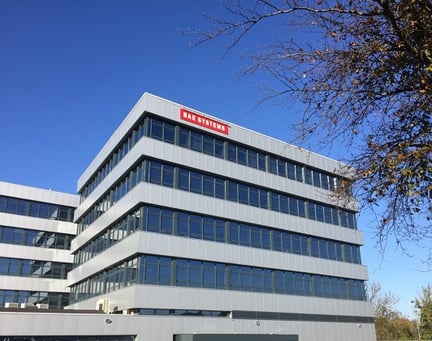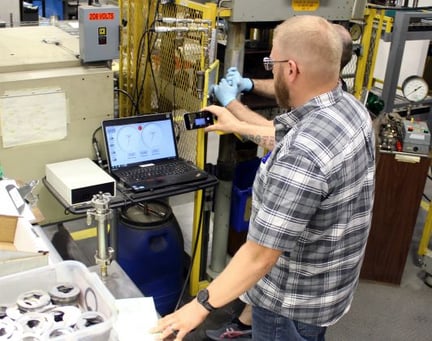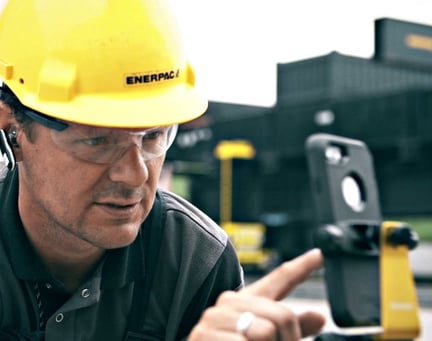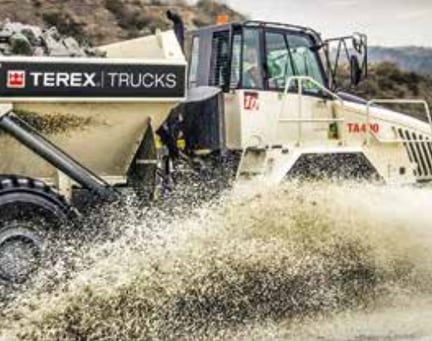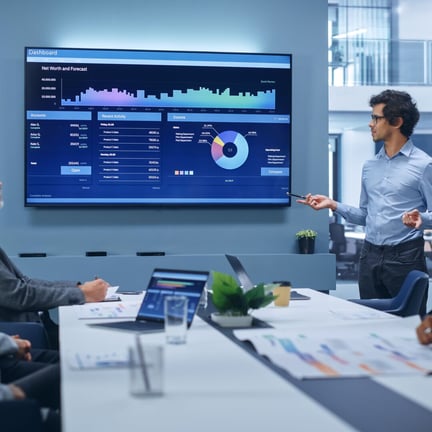The World Nuclear Exhibition has wrapped up after drawing 680 exhibitors and more than 9,100 attendees from around the world in Paris. LRQA's Global Head of Nuclear, Simon Emeny, is back as well and reflects on the bi-annual three-day show.
What makes WNE a good exhibition to attend?
WNE is only held every two years, so it's a great way to connect with familiar faces. LRQA has attended all three WNE events, so it's nice to see who's new and explain how we fit into the nuclear safety and supply chain area.
What topics came up when talking to companies at WNE?
Equipment qualification; counterfeit, fraudulent, and suspect items (aka CFSI); and localising the nuclear supply chain are three recurring topics. The latter two are related.
People tend to focus on processes to detect fraud. With more fraudulent items turning up in nuclear supply chains, it's very easy to be reactive and try to change processes after a discovery. However, we see CFSI as a problem where culture and prevention is preferable to detection being the first line of defense.
No longer do you have many situations where a nuclear plant that's either under construction, or one that is ordering spare parts, can get those parts even in country. Likely they're coming from overseas. Your people in charge of accepting the parts on site – that is your detection strategy. But making sure that the factories you order your parts from are reputable and committed to nuclear safety – that is your first line of defense.
At LRQA, we say invest in that culture change, invest in a culture of quality and responsibility. Add this into your CFSI policy.
Talk more about the second topic, the localisation of supply chains?
Yes – it does relate. Globally, nuclear construction codes and standards are a complicated web. Sometimes so complicated that the suppliers aren't sure how to comply, or don't even know what they don't know, as they say.
As I said before, many of these parts are coming from overseas because they're just not being produced nearby where the plants are being constructed. We were talking with manufacturers and licensees about how this could change, and what LRQA can do to help. After all, we deal with these codes and standards in nuclear all over the world, from Korea to the UAE to the UK.
Is there a way that licensees and technology providers can get the confidence and assurance from local suppliers? Maybe local suppliers could form partnerships to expand into new markets, and fill a need they may not know about now.
Globally, nuclear construction codes and standards are a complicated web. Sometimes so complicated that the suppliers aren't sure how to comply.
And it seems that topic leads into the third…Equipment qualification.
It certainly does. Again, it’s a complicated set of rules and standards and laws. Imagine the plight of the manufacturer trying to come up with an innovative piece of kit for a nuclear plant. The barriers they have to getting that on the market? That said, there are new pieces of equipment, so on the flipside you have the licensees, the owners of the plants and their risk: how do they know they can depend on this new equipment to perform?
The global nuclear community is a small subset of the power generation industry – you don’t necessarily have the scale of implementation that you would in another industry, so it’s a real risk for these companies to adopt new technology.
You mentioned understanding codes, and standards – is that how LRQA can help?
I think that’s where LRQA brings real value to both sides of the nuclear supply chain. We can help manufacturers qualify their new designs through our Equipment Qualification service or EQ. EQ is a systemic approach to making sure components and systems meet the relevant nuclear quality standards. It’s really about gaining a consistent set of data for manufacturers and licensees alike. We’ve been working both with the Nuclear Advanced Manufacturing Research Centre (NAMRC), and with our subsidiary LRQA Apave Limited to support the UK nuclear new-build programme in this regard.
Subscribe to our Nuclear mailing list
LRQA's Nuclear power experts regularly share their knowledge and learnings. To receive our technical papers and industry insights, sign up here.
Subscribe to our Nuclear mailing list

